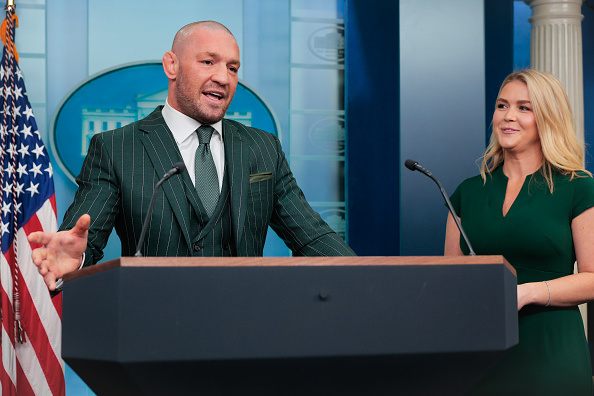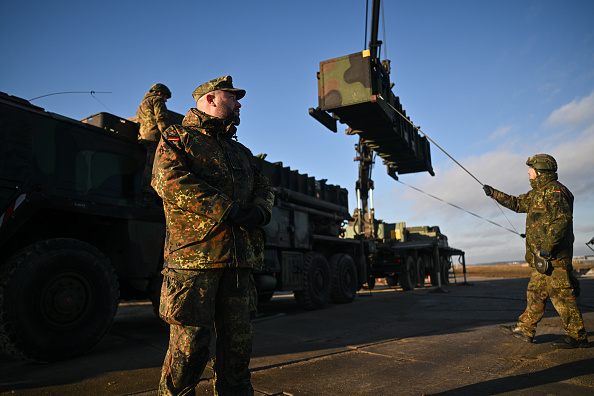For over a hundred days, every pundit and columnist has tried to decipher Donald Trump’s foreign policy strategy.
After sifting through the reports and the presidential social media posts, I think I have finally figured it out.
Hs presidency is less the no-nonsense approach his supporters hoped for and his critics feared–but an entirely new approach, one I would call the “no-nuisance doctrine”.
Contrary to past leaders, Donald Trump is not a dedicated ideologue who has chained himself to a specific worldview. “Make America Great Again” is both short and substantive — making the deals that benefit the US, while ensuring that the rest of the world does not get in the way.
Even his opposition to China is not really ideologically motivated. His administration views Beijing as the main cause of the decline in US manufacturing and the hollowing out of the country’s manufacturing base.
That observation is not entirely without merit: According to the United Nations Industrial Development Organisation, China accounted for 6 per cent of all manufactured goods in the year 2000. But by 2030, that figure is projected to rise to 45 per cent.
Washington does not want to see this trend continue. But Trump would nonetheless be willing to cut a deal with the Chinese, if it ensures more production in the United States.
It is also true America has been the world’s largest importer of consumer goods, while other countries built their entire economic model on running a positive trade balance at the expense of America’s.
Germany and China are just two particularly prominent examples, and Trump is not wrong in demanding those who sell to the US also buy from the US.
That being said, however, this is not really a deeply ideological conflict comparable to, say, the one between the Communist and Capitalist blocs in the Cold War. At least, Trump appears not to see it in such a way, though I am not sure if his Chinese counterparts share this view.
Regarding the rest of the world, Trump appears to believe no one is an ideologue if you can just offer them a big enough carrot or stick. People mocked his ideas of turning Gaza into a luxury resort or ending the war in Ukraine within 24 hours, but I believe he was absolutely serious about both.
Even his much-televised blow-up with Ukraine’s President Zelensky at the White House was more the mark of a man without patience than a man with a plan. The idea some peoples and their leaders hold deep-seated historical grudges is entirely alien to him.
So, it is no surprise he can find some approving remarks for the Houthis in Yemen before agreeing to a ceasefire with them. Donald Trump is likely neither a complete isolationist nor an imperialist, but seems intent on minimising “nuisances” in international affairs.
Using this context, it becomes clearer why Trump’s “patience with Netanyahu is running out”, and why he is eager to strike a deal with Iran. He also had no problem meeting Syria’s new leader, Ahmed al-Sharaa and working towards lifting sanctions on Damascus. It is all but forgotten, but only a year ago, (when al-Sharaa was still known as al-Jolani) the US government promised $10 million for his capture.
Trump’s admirers will hail this transactional approach as genius, ensuring the United States will do business with everyone but fight wars with no one–or, to put it differently, do what China has been doing for the past 50 years.
I doubt, however, it will be as easy at it seems. First, we have heard this story before. In 1946, Colonel William Eddy, the first United States minister to Saudi Arabia, received a clear message from the country’s founder, Ibn Saud–saying “We will use your iron, but you will leave our faith alone.” And so they did, enabling Saudi Arabia to become the world’s largest exporter of Islamist ideology. I am sure Colonel Eddy did not anticipate not even two generations later, 15 Saudi nationals would hijack civilian airliners and strike the American homeland in a way neither the Germans nor the Japanese ever could.
Is Trump repeating this mistake? There is a persuasive idea everything in the world is just a reaction to US policy, and no one except Washington really has any agency of their own. Trump, apparently, believes this too. If he just wants it enough, there will be peace everywhere from Ukraine to the Middle East, because these wars are just consequences of failed American policies.
Maybe there is some truth to that, but is it credible to believe a die-hard former Islamist like al-Jolani, al-Sharaa (or whatever his next name will be) and his followers have truly given up on all their ideological beliefs because Trump is being nice to them? The man is 42 years old. I doubt he is planning to dedicate the rest of his life to keeping the prices of watermelons in Damascus low. Names might change, but I doubt that the ideology does.
For Trump and his administration, all of this might appear like mere nuisances that can be dealt with from a distance. Like an open wound, however, these things tend to fester, and ideologies do not disappear just because you ignore them.
Maybe Trump does not have an ideology, but plenty of other people do. And they will not let go of them just because the US retreats. Look at the fate of the Jews. When there was no Israel, anti-Semites in Europe called on them to “go back to Palestine.” And shortly after they went, the same people demanded that they get “out of Palestine and back where they came from”. If Trump thinks those who hate America will stop doing so “because Trump,” that will turn out to be a mistake.
After years of mismanaged wars, the US public is exhausted and wishes for an extended phase of isolationism. While this is understandable, we shouldn’t make the mistake of believing the rest of the world will simply stop moving because the US wants it.
Sooner or later, the nuisances will catch up with America. Just as they did on 9/11.





